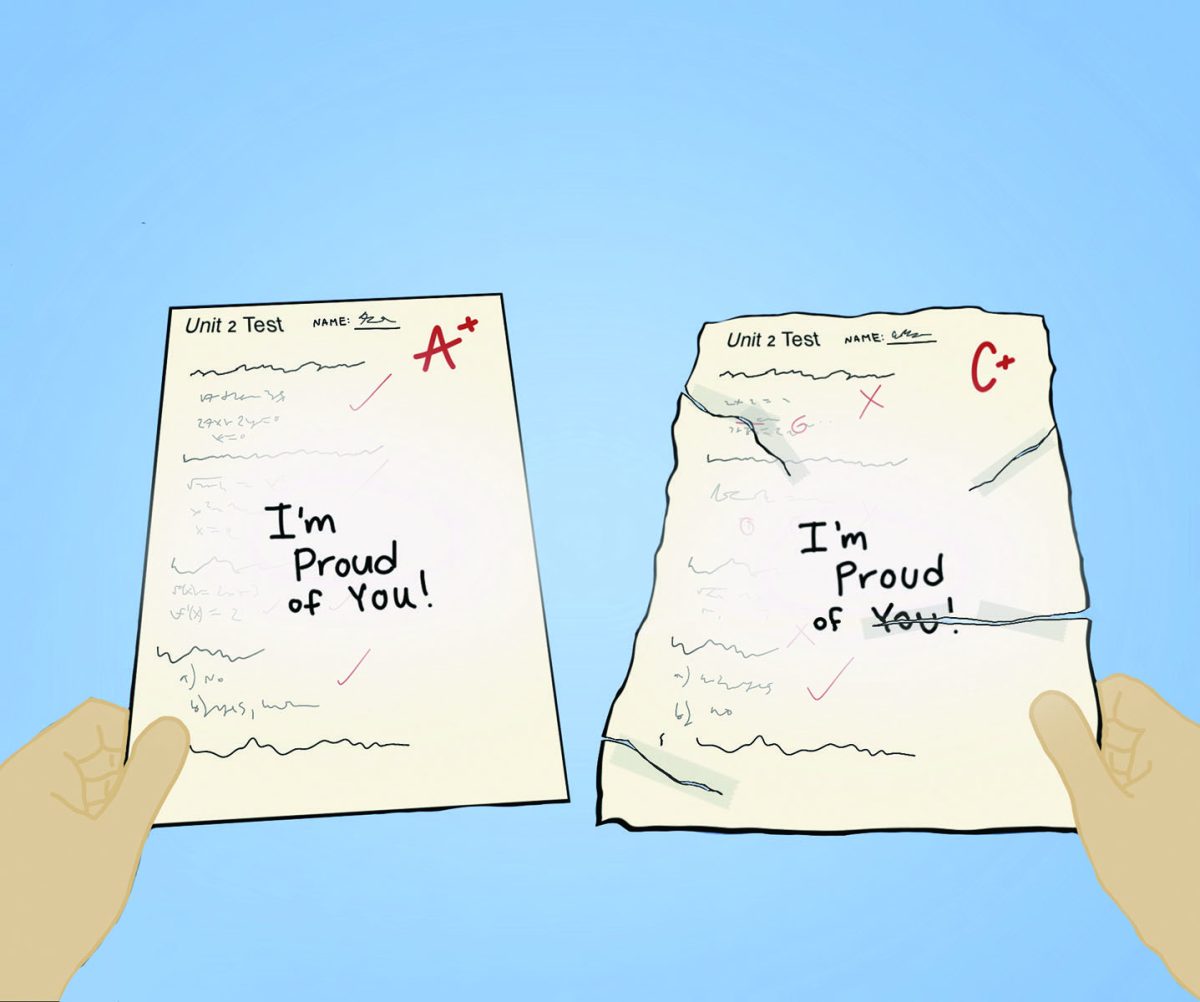This is the moment I have been waiting for. My teacher hands me back my test, and I turn it over with shaking hands to see a “C” circled on the top in jarring red ink. I feel my throat constrict and my heart begin to race, sensations that heighten when the student next to me asks the inevitable question.
“How’d you do?”
I have no idea how to respond. I do not want to share my disappointing score, but if I refuse, my classmate will assume that I did not do well. I gain nothing from talking about my grade, and I find myself wondering what my peer gets out of knowing it as well.
Asking about grades is parasitic. If students receive scores they are unhappy with, feeling obligated to confess their results to classmates can be shameful and damaging to their personal self-esteem. Conversely, students who ask about others’ scores with the intent to boast about their own are setting an example for peers to do the same, directly contributing to the continuation of this cruel cycle. Bragging about an impressive grade may be momentarily satisfying, but while such satisfaction will fade, its impact on other students is lasting.
I’ll admit that the habit of asking about grades is difficult to shake. For some, saying “How’d you do?” has become a natural instinct after assignments are returned. When teachers pass back papers, many of my classmates immediately look around and begin inquiring about others’ scores. I have begun to dread these days for that reason alone.
These prying questions distract us from what really matters. The relief I feel following an exam I studied hard for or the submission of an assignment I put significant thought into is eroded by the anxiety that others will ask about my grade. The sense of competition that stems from discussing scores makes it particularly hard to appreciate my own successes or even acknowledge them at all.
We cannot continue to perpetuate this culture of comparison. It is time to change the conversation. As a senior, I think I have finally figured out how.
When I receive a grade and the “How’d you do?” that automatically follows, I will no longer reply with the numerical value or corresponding letter. Instead, I will say I am proud of the effort I put in.
We must seek other ways to validate our accomplishments than sharing grades with peers. Students should take themselves out for a sweet treat to celebrate a high score or tell a parent excitedly when they get home, but save the victory lap for when school has ended. If students’ scores on a given assignment are not what they had hoped for, they should give themselves grace and remember that a single test or essay will not define their year. It is especially relieving to recognize that a disappointing grade may soon be minimized by the next assignment they complete.
We should stop questioning others about their grades. Instead, we must begin questioning the culture that has normalized this practice. In an environment already overflowing with competition between students, sharing scores with one another only worsens the flood. Students need to stop competing to start succeeding.


